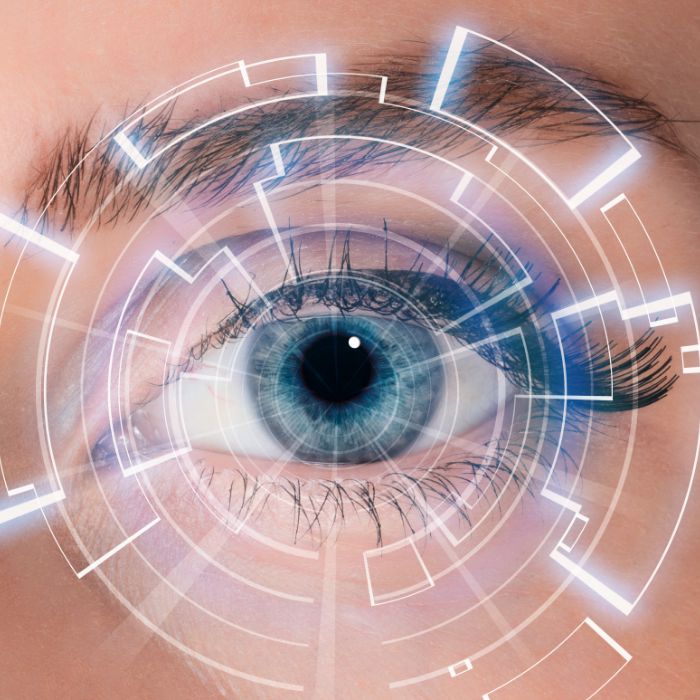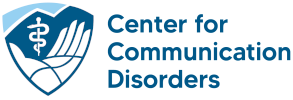Rocky Mountain University Center for Communication Disorders Clinic
Helping Others Find Their Voice
The Center for Communication Disorders (CCD) provides speech-language pathology services to members of the Utah Valley community. Providers include licensed speech-language pathologists and supervised graduate speech-language pathology students from Rocky Mountain University of Health Professions (RMU). Both licensed providers and students are equipped to provide exceptional care.
The CCD provides a broad range of services for people who have suffered stroke, traumatic brain injury, neurological disease, head and neck cancer, and various other etiologies resulting in impaired communication, cognition, and swallowing.
Many insurance providers are accepted and pro-bono services are available for those who qualify.

Committed Clinicians and Top-Notch Students
CCD clinic staff are comprised of licensed clinicians and students from the Master of Medical Speech-Language Pathology (MS MedSLP) program at Rocky Mountain University of Health Professions. Our clinicians hail from some of the top institutions in the country and form a team of experts dedicated to outstanding clinical practice.

About the Clinic
Our Mission
The Center for Communication Disorders (CCD) opened in 2018 with the mission of providing Speech-Language Pathology services to members of the community, particularly the underserved and uninsured.
Client-Focused Care
We serve clients of all ages and provide a broad range of services for people who have suffered a stroke, traumatic brain injury, neurological disease, head and neck cancer, and various other etiologies resulting in impaired communication, cognition, and swallowing. We pride ourselves on providing thorough, client-focused care to meet the highest expectations of our clients, their families, and their physicians. We are committed to providing these services in a safe and inclusive environment without regard to economic status, race, religion, ethnicity, gender, or sexual orientation. Most importantly, we want to help those in our local community find their voice.
How to Get Started
Step 1: Contact Us
Contact us by phone or email and complete the new patient intake form.
Step 2: Assessment
An in-person assessment will be performed during the visit.
Step 3: Diagnosis
The severity of the Disorder or Deficit is established for further treatment.
Step 4: Treatment
A treatment plan and frequency of visits is determined by the clinician.
Pro-Bono Services
The Center for Communication Disorders offers pro-bono services to those who qualify. The services that we offer would not be possible without the help of generous donors and the Rocky Mountain University Foundation.
Support Groups
Aphasia Group
The weekly Aphasia group provides an opportunity to support individuals socially by focusing on communication skills such as working to increase language comprehension skills, using word-finding strategies, and initiating conversational turns.
Meetings
Starting January 17, 2024
weekly meetings on Wednesdays 10:30 a.m. – 11:30 a.m. at Rocky Mountain University.
AAC Family Support Network
The AAC Support Group is available to provide support to the community of caregivers and families of individuals using augmentative and alternative communication (AAC).
Meetings
The last Tuesday of every month from 7:00 pm to 8:30 pm at the Center for Communication Disorders in Provo, Utah.
Friends for Life
Friends for life helps expand and shape commutative engagement in a spontaneous and interactive environment. We give individuals, confidence for social situations.
Meetings
We meet every Thursday from 3:30 pm to 5:30 p.m. At the library inside American Fork High School.
Autism Resources
Looking for resources to watch, learn, & implement at home?
Content
Videos, articles, checklists, & more that can help.

Prevent Blindness: Early Detection and Treatment Crucial for Glaucoma
Glaucoma is a progressive eye disease that can lead to blindness if not treated. It often has no symptoms in the early stages, but regular eye exams can help detect it. Glaucoma results from a build-up of intraocular fluid that causes pressure inside the eye, damaging nerve fibers and leading to vision loss, identified by a cupping shape of the optic disc. Treatment options include prescription eye drops, laser treatments, and surgery to lower eye pressure.
